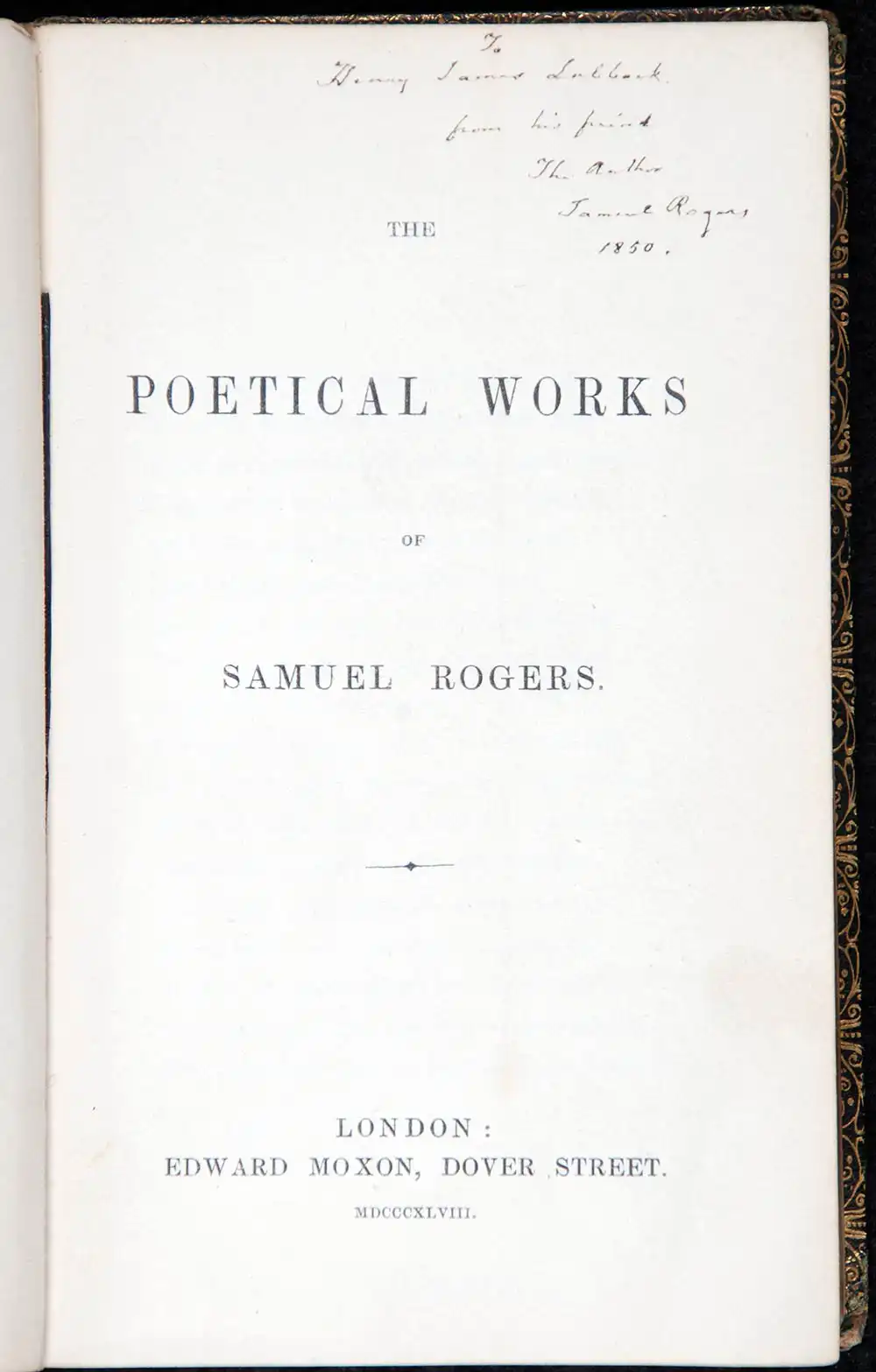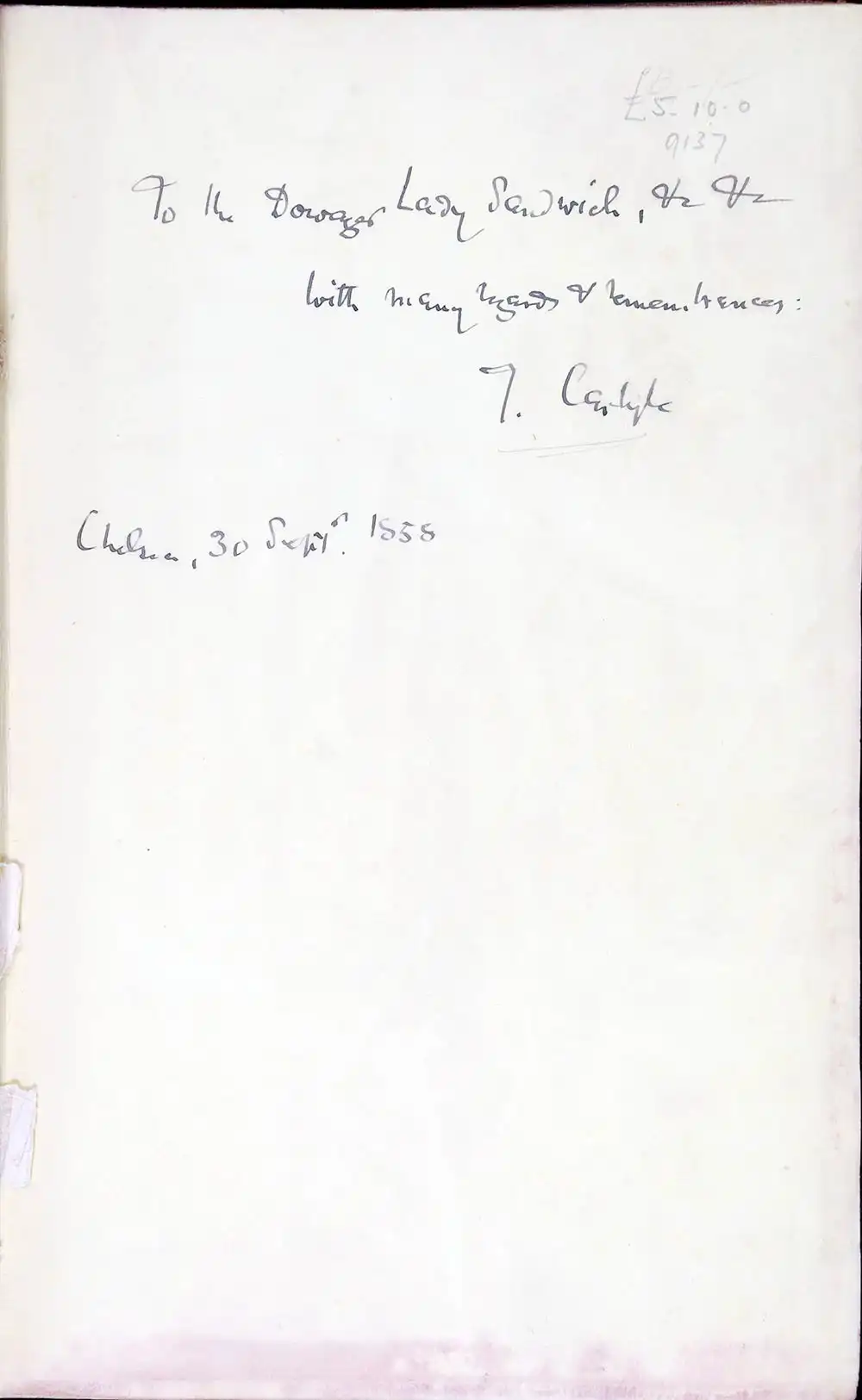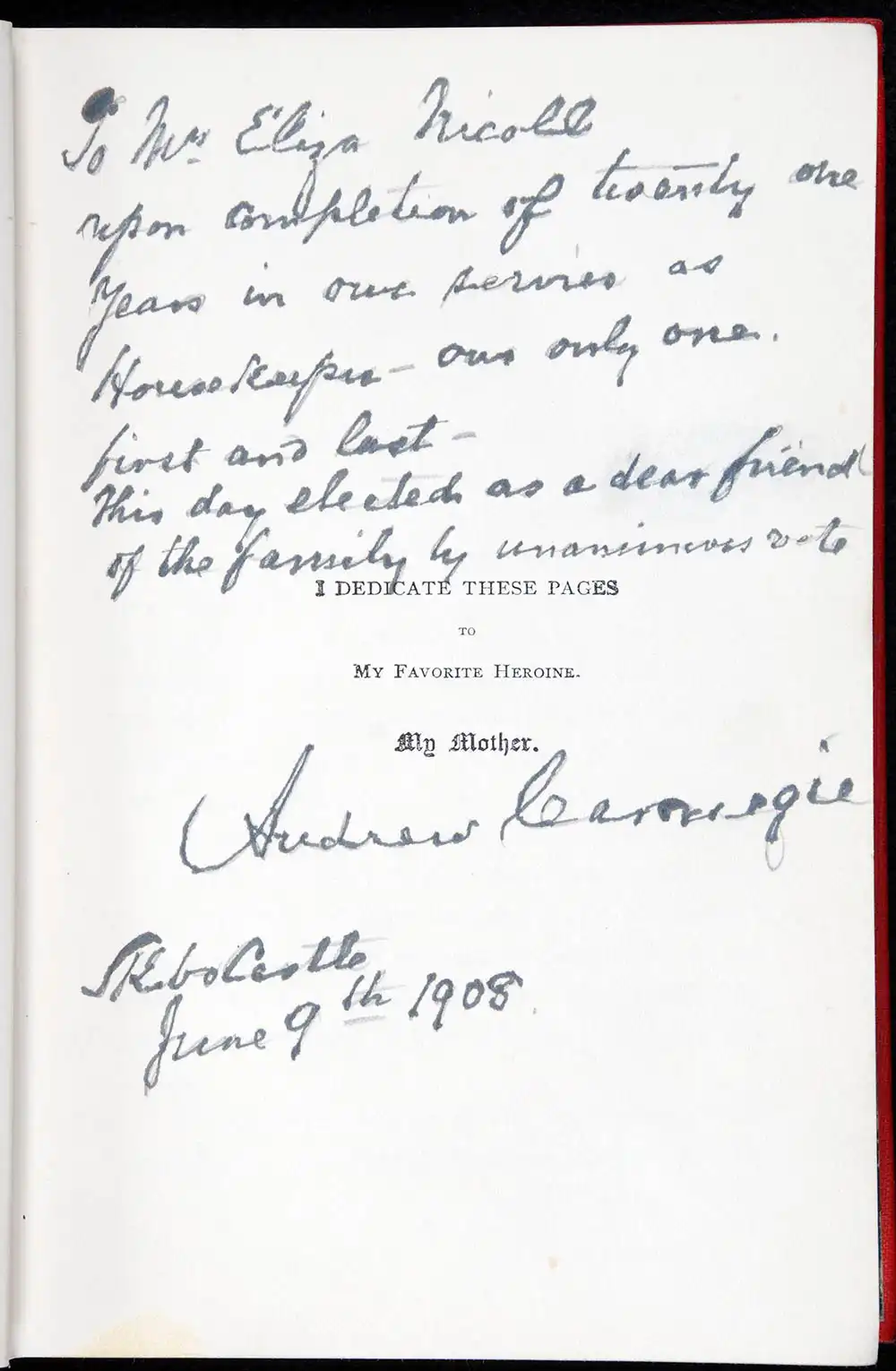Case 6
- Authors’ Presentation Inscriptions 4

Samuel Rogers. The poetical works of Samuel Rogers. London: Edward Moxon, 1848.
Samuel Rogers
(1763-1855), known as the ‘banker poet’ was born in London and joined his
father's bank at the age of sixteen. He enjoyed banking by day and writing
poetry in the evening. His poem 'Pleasures of memory' (1792) brought him to
literary fame and thereafter he was, during his lifetime, a celebrated poet. He
retired from business comparatively early in life, and entertained most of the
distinguished people of his time. He was also well known for his acerbic wit.
In later
life Rogers met Charles Dickens, who dedicated to him Master Humphrey’s clock (1840-1841). The Reed Collections include a
copy of Rogers’ poetical works with his autograph inscription, clearly written
at 87 years of age; he lived to be 92.

Thomas Carlyle. History of Friedrich II of Prussia, called Frederick the Great. London: Chapman and Hall, 1858-1865. Six volumes; Vol. 1 displayed.
Thomas
Carlyle (1795-1881) was a Scottish essayist, historian and biographer. Carlyle
famously viewed history as dictated largely by the actions of ‘great men’ or
heroes who were gifted with the right traits as well as divine inspiration. This
view is manifested in his last major work, the epic biography of Frederick the
Great.
The Reed
copy of the first volume of this monumental history includes the author’s
presentation inscription to Mary Montagu, Lady Sandwich (1812-1859). The third
volume is inscribed to her husband, British peer and Conservative politician
John Montagu, 7th Earl of Sandwich (1811-1884).

Thomas Carlyle. History of Friedrich II of Prussia, called Frederick the Great. London: Chapman and Hall, 1858-1865. Six volumes; Vol. 1 displayed.
Open image in new window

Andrew Carnegie. An American four-in-hand in Britain. New York: Charles Scribner's Sons, 1903.
Andrew
Carnegie (1835-1919) was a Scottish-American industrialist and philanthropist.
Despite his staunch economic conservatism, he is chiefly remembered for his
generous funding of free public libraries, including in New Zealand.
First
published in 1883, An American
four-in-hand in Britain tells of Carnegie’s experiences touring the British
countryside by horse coach with a group of friends in 1881.
The Reed
copy of a 1903 American edition contains Carnegie’s presentation inscription,
signed in 1908 at his home Skibo Castle in the Scottish Highlands, to Mrs Eliza
Nicoll, to whom he offers effusive thanks for 21 years of service as his only
housekeeper.


